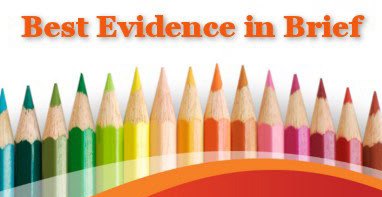A recent study published in the Elementary School Journal examined the impact of a preschool program on the social-emotional, language, and literacy skills of Head Start-eligible Black children. The investigation spanned from preschool to first grade, including transition activities into elementary school.
The program, called Creative Curriculum, is a whole-child learning curriculum covering language, literacy, and math through play-based, hands on investigations. This curriculum was implemented in a neighborhood school serving a student body composed entirely of children of color, with 80% of them facing economic disadvantages. The longitudinal sample consisted of two groups: the intervention group (n=77) comprised of students enrolled in the program during preschool (ages 3-4) and preK (age 5) and followed through first grade, and the matched comparison group (n=82) who did not experience the preschool program, and was followed from kindergarten to first grade. Data were collected across six time points of the study. Results showed, at the end of the 2-year early childhood program, children were performing, on average, in age-expected ways on standardized measures of early literacy and language skills. These language skill gains were sustained into kindergarten and first grade. However, the target gains made during the preschool and pre-K years did not translate into strong reading outcomes in first grade. Findings suggest that despite providing intentionally connected instruction between early childhood and elementary contexts, additional factors, such as professional standards or stronger assessment and instruction emphasizing meaning-making skills such as vocabulary and listening comprehension, must be in place to ensure that kindergarten high-quality instruction effects prevail.

